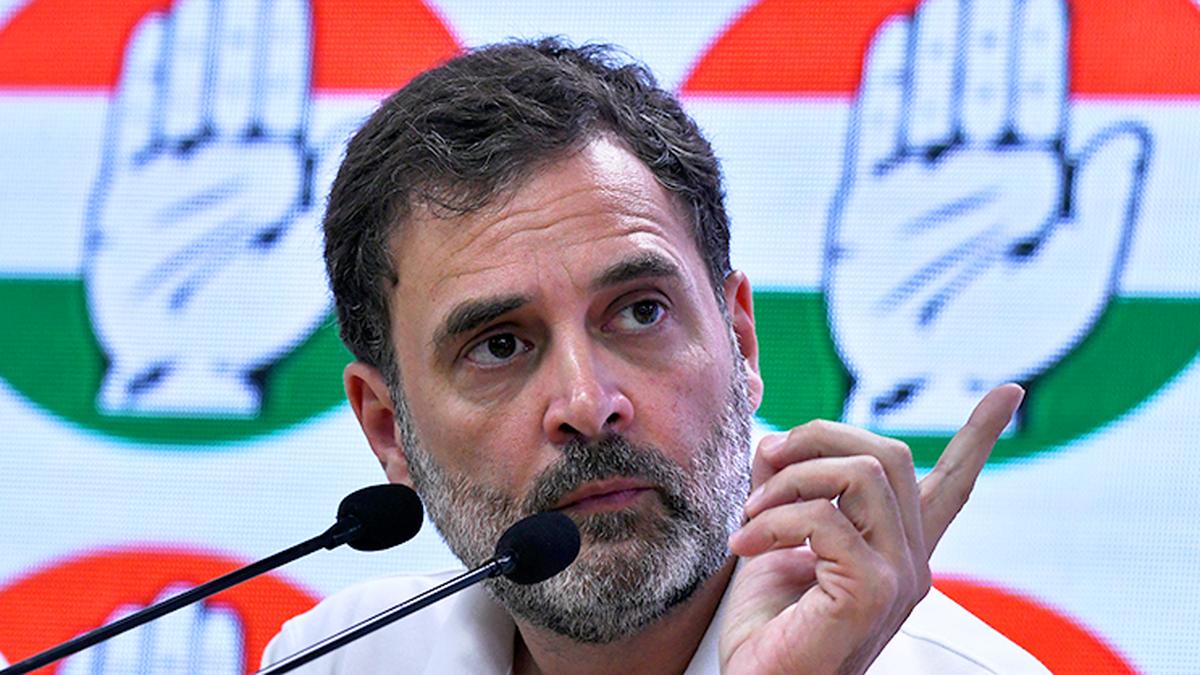 |
|
The seemingly bizarre news emanating from Bihar, India, involves a lawsuit filed against prominent Indian politician Rahul Gandhi. Mukesh Chaudhary, a resident of Sonupur village, Samastipur district, claims that Mr. Gandhi's recent remarks about ‘fighting against the Indian state’ caused him such profound shock that he accidentally dropped a bucket of milk, resulting in a financial loss of ₹250 (approximately $3 USD). This incident highlights the sometimes unpredictable and highly emotional nature of political discourse and its ripple effects on ordinary citizens. The lawsuit itself presents a fascinating legal conundrum, questioning the extent to which political speech can be held responsible for unforeseen consequences experienced by individuals. The question becomes: does Mr. Gandhi bear any legal responsibility for the emotional distress experienced by Mr. Chaudhary, leading to the accidental spillage of milk? This seemingly trivial incident raises significant questions about the limits of free speech, the burden of proof in such cases, and the potential for frivolous lawsuits to clog the court system. The legal precedent set by this case could potentially have far-reaching implications on political speech and individual accountability in India.
The legal basis of Mr. Chaudhary's claim is rooted in a petition filed in the civil court of Rosera sub-division. The petition seeks trial of Mr. Gandhi under various sections of the Indian Penal Code (IPC), specifically mentioning Section 152, which pertains to sedition. This highlights a further layer of complexity to the case, as the connection between Mr. Gandhi's statement and the alleged crime of sedition needs to be meticulously examined. The inclusion of sedition charges adds a significant political dimension to the case, potentially drawing in further scrutiny and media attention. The interpretation of Mr. Gandhi's statement and its potential for inciting unrest will be central to the court's consideration. The fact that the court's acceptance of the petition is unknown underscores the uncertainty surrounding the outcome of this unusual case. The legal ramifications, regardless of the final verdict, are likely to be significant, impacting how politicians are perceived and held accountable for their public statements in India.
The incident also brings to the forefront the role of media coverage in shaping public perception of such events. The widespread reporting of the case, highlighting the seemingly incongruous nature of the claim, adds to the public debate. The media’s portrayal of the situation will inevitably influence public opinion, potentially amplifying the narrative and fostering either sympathy or ridicule for the plaintiff. This case also presents an interesting case study for legal scholars and political analysts, examining the intersection of political speech, personal liability, and the judicial system. The potential implications for freedom of expression and the standard of proof required in emotional distress cases deserve careful consideration. Analyzing similar cases in India and other jurisdictions could provide a richer understanding of the legal framework within which this particular case will be judged.
Furthermore, the incident invites a discussion on the broader context of political polarization and the impact of inflammatory rhetoric on public discourse. The emotional reaction of Mr. Chaudhary, while seemingly extreme, highlights the intense emotional investment many citizens hold in their political beliefs. It also underscores the potential for heightened sensitivities and polarized reactions in the current political climate. The court proceedings, therefore, will not only focus on the specific facts of the case but also reflect on the broader atmosphere of political discourse in India and the potential for its impact on the individual citizenry. The case might also serve as a reminder of the need for measured and responsible communication, especially from public figures, to minimize the potential for unintended consequences stemming from political statements.
In conclusion, the case of Mukesh Chaudhary versus Rahul Gandhi, however unusual it may seem, provides a fertile ground for discussion on numerous complex issues. From the legal challenges presented by the petition to the broader implications for political discourse and public responsibility, the case highlights the intricate intersection between politics, law, and the emotional landscape of society. The outcome of the case will undoubtedly shape future legal interpretations and public understanding of the boundaries of political speech and accountability in India.
Source: Rahul Gandhi Indian state remarks: Bihar man sues over loss of milk worth ₹250
